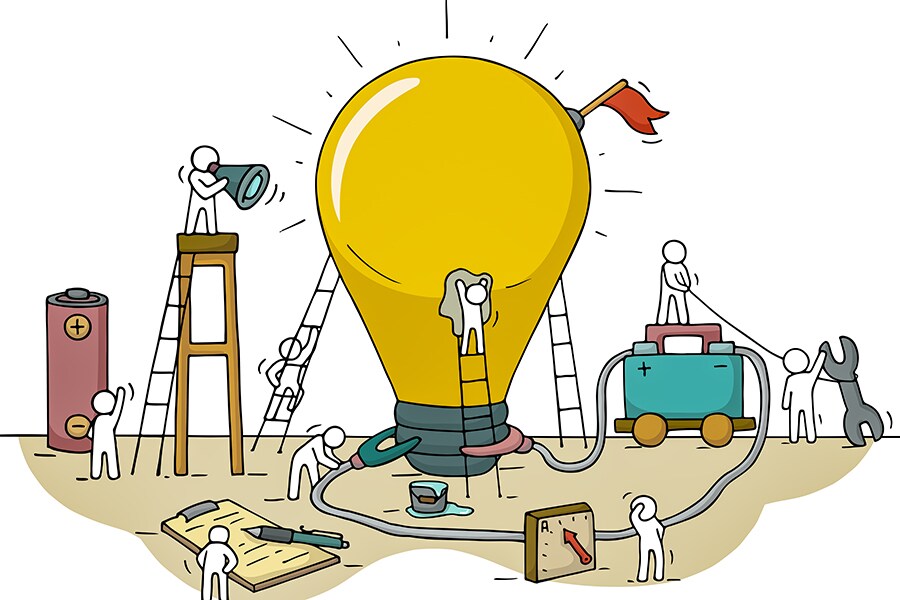
Why some employees improve their creativity and others don't
How our beliefs about creativity explain our ability to improve and sustain it over time
 Some workers learned from their experiences faster, and they created more novel and useful ideas based on the feedback that they received
Some workers learned from their experiences faster, and they created more novel and useful ideas based on the feedback that they received
Image: Shutterstock
Innovation is vital to business, now maybe more than ever before. Firms have been wildly creative in developing breakthrough technologies and adapting to remote work. To successfully adapt to any change, firms rely on their workforce’s creativity. Designers and developers are hired for their creativity, but “non-creative” workers can also come up with excellent, innovative solutions to their daily problems. How can we tap into this creativity at all levels, even on the shop floor?
In recent research forthcoming in the Journal of Applied Psychology, my co-authors, Dana Vashdi, Hadas Gopher and I found that when given the opportunity and encouragement, even veteran manufacturing workers can improve their creativity.
The setting for our study was a manufacturer of advanced electro-optic technologies, with an average employee age of 50. Most workers had been employed at the plant for more than 20 years and many were immigrants. In 2007, the company launched an innovation platform that encouraged workers to suggest ideas for improving their workplace or workflow. Managers reviewed the suggestions and provided feedback, and a panel of experts rated the new ideas on their originality, usefulness and feasibility. Workers could learn and improve their ideas, and suggest better ones the next time. With access to this data and employee surveys, we wanted to understand why some are better than others at improving and maintaining their creativity over time.
We found that some employees improved their creativity at a faster rate and sustained it over time, whereas others did not. Some workers learned from their experiences faster, and they created more novel and useful ideas based on the feedback that they received. Their creative trajectory was steeper than their peers’. But why?
[This article is republished courtesy of INSEAD Knowledge, the portal to the latest business insights and views of The Business School of the World. Copyright INSEAD 2024]







